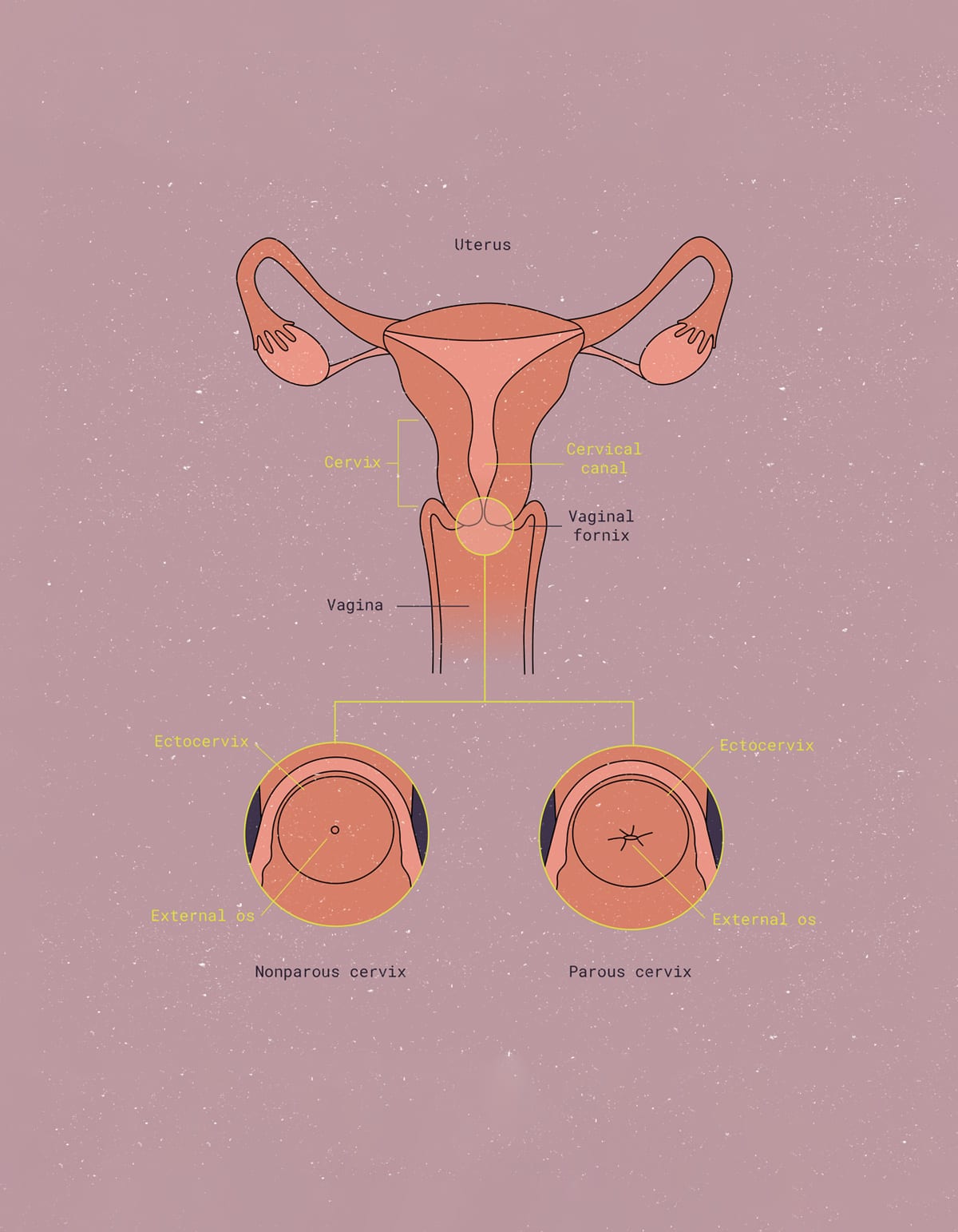Can stress affect Your period? Yes – and in some pretty weird ways
TL/DR: We all know stress can affect our mental health, especially if it never lets up. But it can also affect your menstrual cycle, wreaking havoc on hormones in charge of your cycle. In fact, high stress levels can lead to irregular, more painful, or completely absent periods. Time to queue up the herbal supplements!
By now, most of us are pretty aware of the damaging effects of stress on your mental health and its ability to impact physical well-being. But did you know that it can also impact your menstrual cycle, too? Yeah – turns out, working your ass off to pass that exam or get that promotion might make your period irregular, more painful, or even make it disappear altogether.
Here’s an in-depth look at the many ways in which stress affects the menstrual cycle. And – spoiler alert – even the tiniest fluctuations in hormone secretion can throw your entire system out of whack (did you know stress has pretty much everything to do with hormone fluctuations?). Let’s jump in:
Stress & Your Cycle
You know what stress feels like, obviously. But do you know what happens in your body to create it? It’s a pretty complex process, involving a whole cast of endocrine and metabolic players that work together to keep your systems functioning and, ultimately, keep you alive.
At its most basic level, stress is just your body’s ability to react to any perceived change in the environment, both physical and psychological.1 On any given day, your body reacts to such changes – whether it’s stepping outside to a freezing gust of wind or running into your least favorite coworker at the grocery store – with physical, mental, and emotional responses.

Believe it or not, stress can actually be a good thing (in the short term). It keeps us alert, motivated, and ready to avoid danger: If you smell smoke coming from your bedroom, you don’t just stay planted on the couch with your bowl of popcorn. You get up, assess the scene, and grab a fire extinguisher to put out the flaming sheets.
When stress response becomes not-so-beneficial is when it happens to us over and over – especially for an extended amount of time, without getting a moment to relax. And today, with our lives chronically overstimulated by phones, screen time, social media, and non-stop work, many of us have cortisol levels that remain elevated 24/7, effectively leading to chronic stress.
Hold up: What, exactly, is cortisol?
If you feel like you’re running on fumes, well, those ‘fumes’ are probably cortisol (a.k.a. the stress hormone): It’s the HBIC of steroid hormones and your body’s built-in alarm system. Produced by your adrenal glands, cortisol has the ability to influence your mood, your metabolism, and lots of other physiological processes:2
- Cortisol increases the availability of sugars (glucose) in the bloodstream and enhances your brain’s ability to use that glucose for energy and alertness, giving you a quick jolt of stamina
- Cortisol communicates with the part of the brain that controls mood, fear, motivation, and even memory
- Cortisol slows down or temporarily halts processes that it considers nonessential while in fight or flight mode, such as immune system responses, the normal functioning of the digestive system, menstrual function and the reproductive system, and others
Even in optimal health, your body needs a certain amount of cortisol in order to function. Problems only arise when levels of cortisol get way out of control, throwing off what’s called your HPA axis (the hypothalamic-pituitary-adrenal axis).

The hypothalamic-pituitary-adrenal axis: AKA the HPA axis
The HPA axis has three major players: the hypothalamus, the pituitary, and the adrenals. All three communicate with each other via hormones that course through your bloodstream.
During a stressful event, the hypothalamus is alerted, and it responds by releasing hormones that travel through your body and eventually wind up in the adrenals. Like a long game of telephone, when the adrenals finally hear about this message, they push out cortisol, cortisol, and more cortisol.
Over time, if this process happens repeatedly, your body can’t catch a break. This state of prolonged stress may result in a phenomenon known as dysregulation of the HPA axis – and it can lead to major burnout, amenorrhea The absence of menstruation, often defined as missing one or more menstrual periods. (absent menstruation), late periods and other menstrual irregularities.3
Stress and the menstrual cycle: Can stress cause a missed period?
So: How do elevated cortisol and a whacked out HPA axis create problems with the menstrual cycle?
Our bodies haven’t quite evolved to recognize the kind of stress we experience most often in modern life. Even though a looming deadline, a fight with your partner, or your friend suddenly requesting $527 from you on Venmo for Uber rides don’t necessarily qualify as life-threatening circumstances, our adrenal system still registers them as such.
When cortisol secretion levels skyrocket, the body temporarily shuts down parts of “nonessential” systems (looking at you, ovaries) to conserve energy for outrunning that imaginary lion, tiger, or bear.

In the female reproductive system, high cortisol production has an effect on two key hormones involved in the phases of your cycle leading up to ovulation: Follicle-stimulating hormone (FSH) and luteinizing hormone (LH). FSH is responsible for stimulating the follicle growth; LH is responsible for prompting the release of the egg from the ovary. Stress impacts when and how these hormones (also known as gonadotropins) are produced.4
When the HPA axis is activated, the delicate chain of hormonal processes may be disrupted, causing a hormone imbalance. As a result, the follicle may not fully mature – or the maturation process is put on pause, delaying ovulation or preventing it altogether.4 Kinda makes sense, if you think about it: Your body doesn’t want to set itself up for pregnancy if it assumes you’re under some sort of attack.
So, can stress delay your period?
Your body’s failure to ovulate, known as anovulation, is the one of the most common causes of irregular periods (and irregular menstrual cycle itself) during times of increased stress.5
Stress can also impact the length of your menstrual cycle (we’re talking whole-month-or-more, not just the duration of your period itself), the level of discomfort during your period, and whether your period shows up at all.6
Can stress cause heavy periods?
Yes, it can make PMS and period pain worse than usual.
One study found that high levels of stress caused premenstrual symptoms and dysmenorrhea – think awful cramps, bloating, nausea, vomiting, low back pain, and fatigue.7 And if you already tend to experience severe PMS symptoms, it may make them worse than usual.

However: Stress hasn’t technically been shown to directly cause menorrhagia (a fancy word for heavy bleeding)8. That said, it’s probably safe to assume that being stressed isn’t making things any better – especially for individuals who already often deal with a heavy flow, such as those with underlying health conditions such as endometriosis or Polycystic Ovary Syndrome (PCOS).
Can stress make your period longer?
It has been proven to cause irregular periods and a longer (or shorter) overall menstrual cycle, usually due to the hormone level changes that impact ovulation.
If you noticed that your cycle is lasting about 38 days (or 20 days, or even 50 days) instead of your usual 28, there’s a good chance it could be stress related. So maybe try:
- Deep breathing or meditation
- Taking care of yourself with a warm shower or bath
- A long walk or gentle stretching
- Herbal supplements to chill

How can managing stress positively influence menstrual regularity?
Managing stress can positively influence menstrual regularity by reducing cortisol levels, which can affect hormone balance. Treatment options include stress management techniques such as meditation, exercise, and adequate sleep, which can help reduce its effects, regulate the menstrual cycle, and reduce period irregularities.
Key Takeaways: Can periods be delayed by stress?
P.S. If you experience very long or irregular cycles, missing periods, abnormal vaginal bleeding, or have unusual levels of pain for more than a few months, make an appointment with your gynecologist or primary health care provider: It’s a good idea to rule out other potentially more serious medical conditions.








